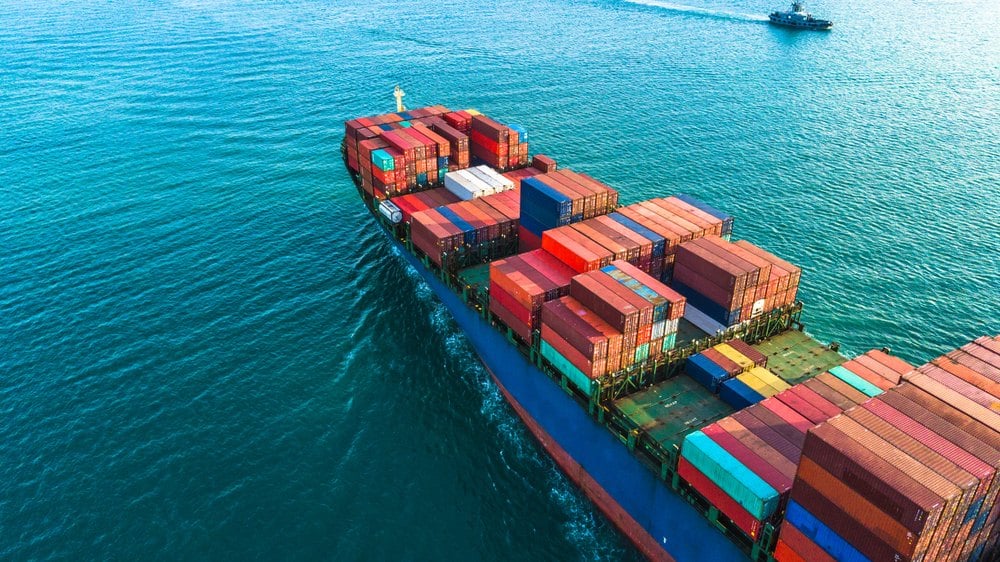
Since leaving the EU, UK businesses which import and export have been faced with many challenges including the move to the new Customs Declaration Service (CDS).
It seems that, initially, HMRC were taking a ‘light touch’ approach to customs compliance, but now HMRC and the tax authorities in the EU are taking a closer look at import/export documentation.
Many businesses rely on third parties, such as customs agents or freight forwarders, to complete the required documentation. But this can be risky, as it is easy for mistakes to be made when the agent is completing hundreds of forms for hundreds of different clients.
Incorrectly completed documents can be very costly, as the information provided directly affects the amount of customs duty and VAT having to be paid, and can result in the wrong business being responsible for the payment of the duty and VAT.
Businesses need to be particularly aware of the following areas.
Incoterms
Incoterms (also known as delivery terms) are the selling terms that the buyer and seller of goods both agree to for international transactions, which cover various practical and commercial aspects of the delivery of goods, and are important as they identify who is responsible for paying the duty and VAT.
There are 11 pre-defined incoterms divided into 2 groups. Group 1 covers all modes of transport whilst group 2 specifically covers transport by sea or inland waterway. The most commonly used ones are:
EXW – Ex Works (named place)
The seller makes the goods available at their premises. This term places the maximum obligation on the buyer and minimum obligations on the seller. The buyer is responsible for everything from collection of the goods, including completing all the export documentation and paying duty and VAT.
CPT – Carriage Paid To (named place of destination)
The seller pays for the carriage of the goods up to the named place of destination (usually the place of shipment in the country of import). The buyer is responsible for carriage thereafter along with all insurance costs and paying any duty and VAT to enable customs clearance.
The equivalent term for sea/waterway transport is CFR.
CIP – Carriage and Insurance Paid to (named place of destination)
This is similar to CPT, but the seller is required to obtain insurance for the goods while in transit. CIP requires the seller to insure the goods for 110% of their value. The buyer is still responsible for paying duty and VAT.
The equivalent term for sea/waterway transport is CIF.
DAP – Delivered At Place (named place of destination)
The seller is responsible for arranging carriage and for delivering the goods, ready for unloading at the named place, usually the final destination. It is the buyer’s responsibility to pay the duty and VAT.
DDP – Delivered Duty Paid (named place of destination)
The seller is responsible for delivering the goods to the named place in the country of the buyer, and pays all costs in bringing the goods to the destination including import duties and VAT. This term places the maximum obligations on the seller and minimum obligations on the buyer.
If the terms of the contract between the supplier and the purchaser mean that the supplier is responsible for paying duty and VAT e.g. incoterm DDP, the supplier will be the importer of record and may be required to register for VAT in all the countries goods are exported to.
Commodity codes
Commodity codes are internationally recognised reference numbers. Each code describes a specific product when importing or exporting goods. The commodity code determines:
- the rate of Customs Duty and import VAT.
- preferential rates which may apply.
- whether a licence is needed to move goods.
- whether goods are covered by a trade agreement.
- whether goods are covered by:
- agricultural policy.
- anti-dumping duties.
- UK safeguarding measures.
- tariff quota.
Use of an incorrect commodity code can lead to too much or too little duty or VAT being paid.
Under-paying VAT and/or duty by using an incorrect commodity code can result in having to backtrack four years’ worth of imports and pay all outstanding duty & VAT within 30 days. If Customs deem the use of the wrong code was done knowingly then heavy penalties will be levied.
Overpaid import VAT/duty can be reclaimed from HMRC if identified and quantified.
Rules of origin
The UK has a free trade agreement with the EU — the Trade and Cooperation Agreement (TCA).
To export tariff-free under the TCA, goods must meet the UK-EU preferential rules of origin.
Exporters must be able to show that the goods have originated in the UK. Goods that can be classified as originating in the UK are:
- Wholly obtained goods – These are products that are, or are made from goods that are, wholly obtained in the UK. For example, live animals born and raised in the UK or minerals extracted from UK soil.
- Sufficiently worked or processed goods – These are products that are made from materials originating from different countries that are sufficiently worked or processed in the UK.
There are three basic rules to determine whether a product has been sufficiently worked or processed:
-
the ad-valorem, or ‘value added’ rule: Work undertaken in the UK must contribute a minimum percentage of the value of a product. Typically, 50 per cent or more has to be added to claim UK origin.
-
the change of tariff classification rule: Work undertaken on a product in the UK results in a change in classification. For example, the commodity code for cotton will be different to that of a finished t-shirt.
-
manufacture from certain products or through specific processes: Finished products can qualify if they have undergone specific processes detailed in the agreement.
To claim preferential duty rates, documentary proof of origin must be held and needs to be noted on customs declarations.
Customs declarations
Customs declarations need to be completed correctly. Penalties for incorrect submissions can be as high as £2,500 per contravention for significant irregularities and £1,000 per contravention for less serious errors.
Contact our team for advice
As you can see, there is a lot to be aware of when it comes to customs issues post-Brexit, and mistakes can cause major issues if detected by HMRC or the EU tax authorities. That's why we recommend consulting an expert if you are in any way unsure of the right way to proceed. If in doubt, contact the Shorts team today and we will be happy to help.

Scott Burkinshaw
I am Head of Business Taxes at Shorts, where I lead our specialist Radius team focusing on R&D tax relief. As a Chartered Tax Adviser with over a decade of experience at national and international firms, I work with businesses and their owners to provide strategic corporate and personal tax advice. My expertise includes R&D tax relief, business disposals and acquisitions, and long-term tax planning, helping clients achieve their goals in the most efficient way.
View my articlesTags: VAT, Business Taxes
